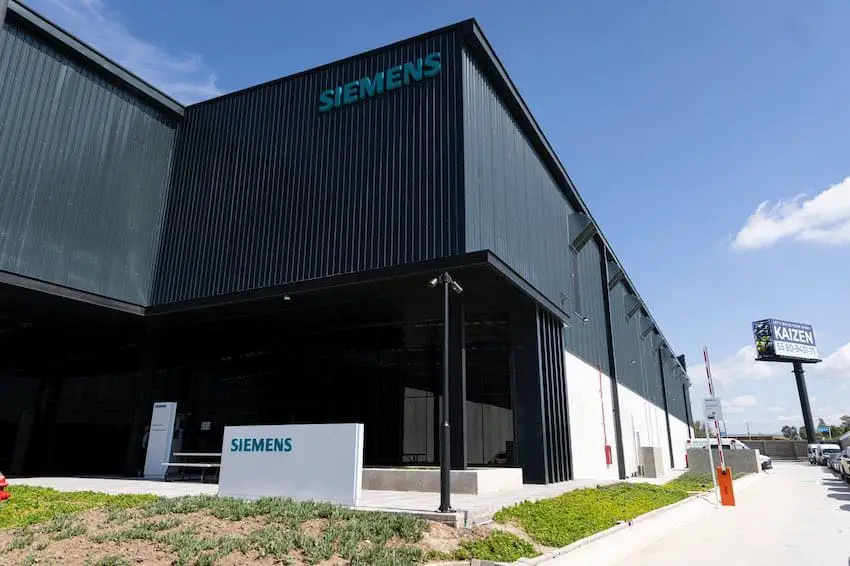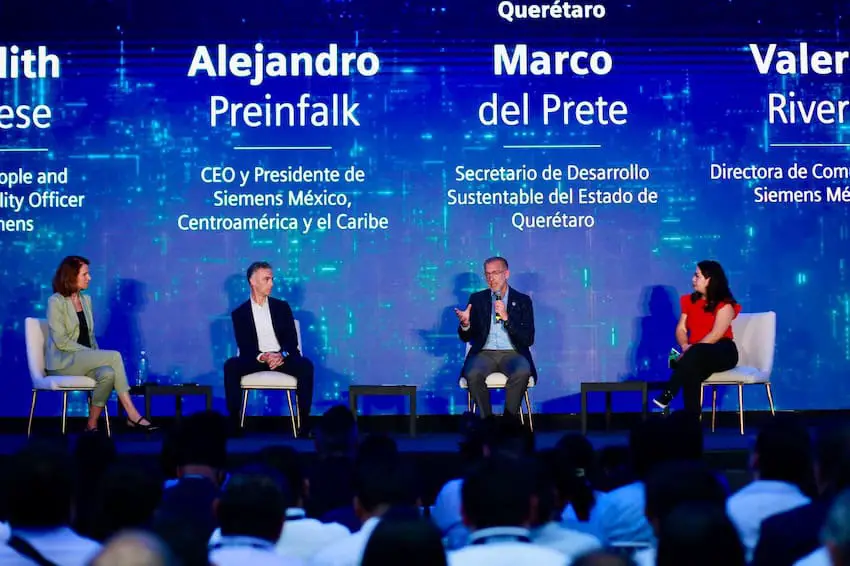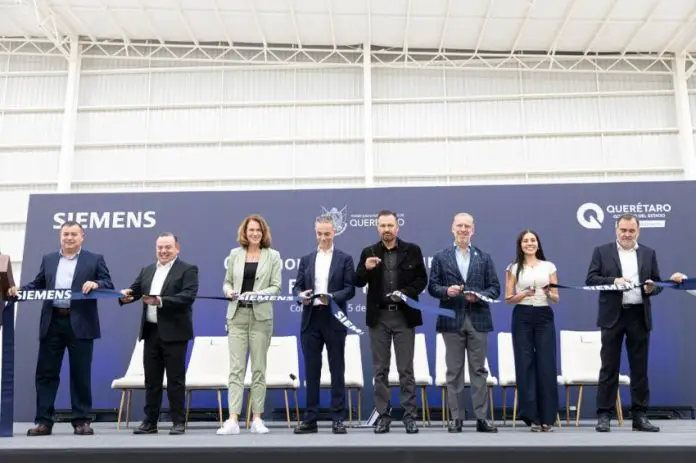German technology conglomerate Siemens inaugurated a new plant in Querétaro last week that the company says will enhance its ability to provide energy distribution solutions in Mexico and North America.
Siemens will invest 940 million pesos (US $52.4 million) over five years with the aim of strengthening its position in the medium and low-voltage energy market, while also contributing to economic development and job creation in the region.

In a social media post, Querétaro Governor Mauricio Kuri celebrated the 400 new jobs that will be created at the new production facility, while praising Siemens’ decision to expand operations in the state.
Kuri asserted that the new Siemens plant demonstrates that his administration “continues to provide the best conditions for investment,” a claim supported by the fact that Querétaro was set to be the biggest recipient of investment by amount announced in the first six months of 2024, according to the federal Economy Ministry.
At the inauguration, Alejandro Preinfalk, CEO of Siemens Mexico, Central America and the Caribbean, said the Kaizen plant is “not only an operational expansion, but also a step toward a more sustainable future.”
“The inauguration of Kaizen underlines the agreement … to reduce carbon emissions through the implementation of Siemens’ SiGREEN technology,” Preinfalk said.
SiGREEN is a Siemens platform that helps manage product-level emissions, known as a Product Carbon Footprint (PCF). PCF measures in carbon dioxide equivalents the total greenhouse gas emissions generated by a product, from extraction of raw materials to end-of-life.
Siemens and the Querétaro government signed a memorandum of understanding (MoA) that aims to accelerate supply chain decarbonization through the SiGREEN platform and slash greenhouse gas emissions across Queréetaro’s business landscape.

Preinfalk praised the collaboration as a win for Mexico’s industrial ecosystem and sustainability goals. “This solution enables precise carbon footprint tracking based on industry standards, enhancing supply chain transparency. It also enables companies to share emissions data, facilitating assessment and implementation of measures such as renewable energy adoption, resource efficiency and transport optimization,” Preinfalk said.
A day after the inauguration, Marco del Prete, head of Querétaro’s Sustainable Development Ministry, spoke about emissions reduction and industrial sustainability initiatives at an event celebrating Siemens’ 130 years of operations in Mexico.
In a social media post, del Prete reiterated the state government’s commitment to an energetic and environmentally responsible future.
“We are continuing to analyze the benefits of the SiGREEN platform to continue with the decarbonization of the industry in the state … [the platform] tracks the carbon footprint of products that arrive or are produced in Querétaro,” del Prete said.
With reports from Milenio and Mexico Industry
